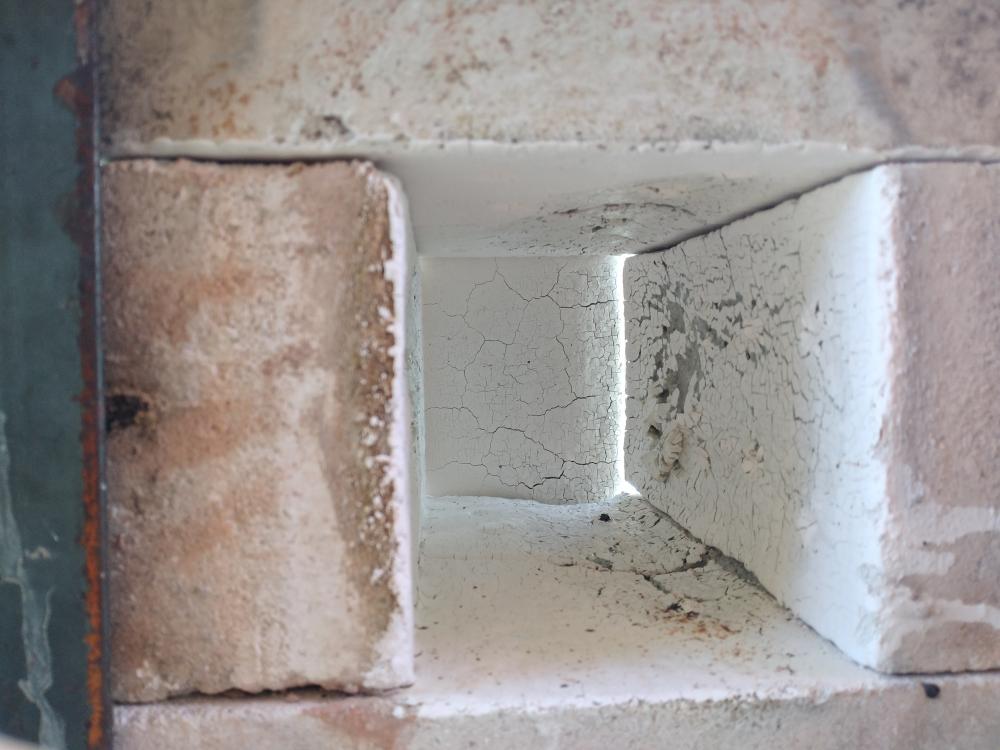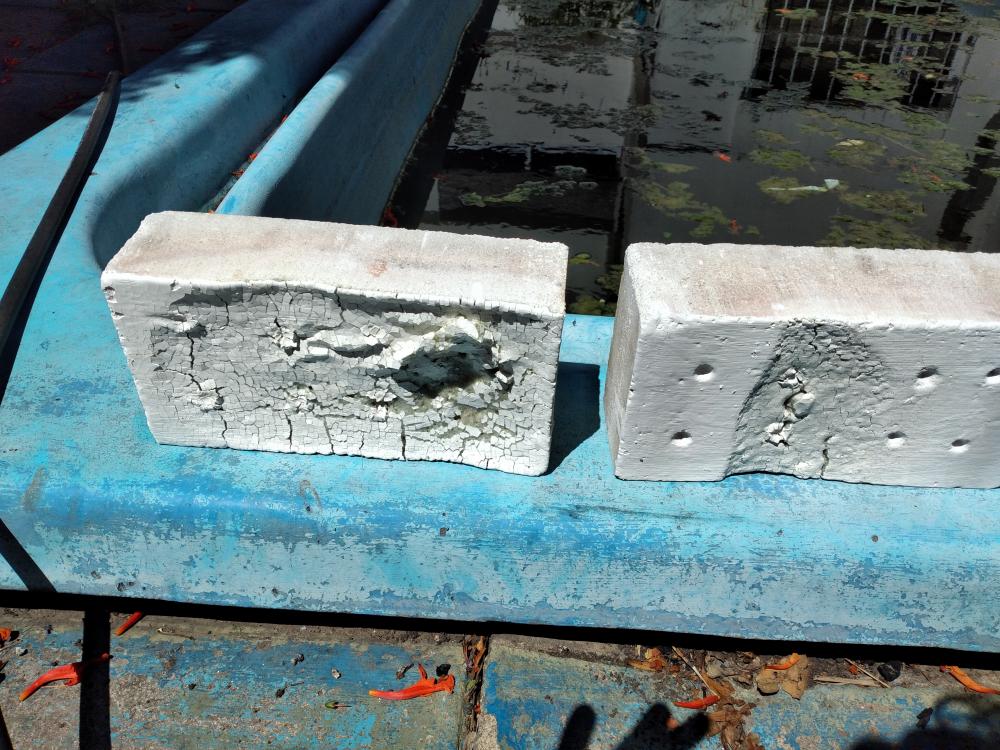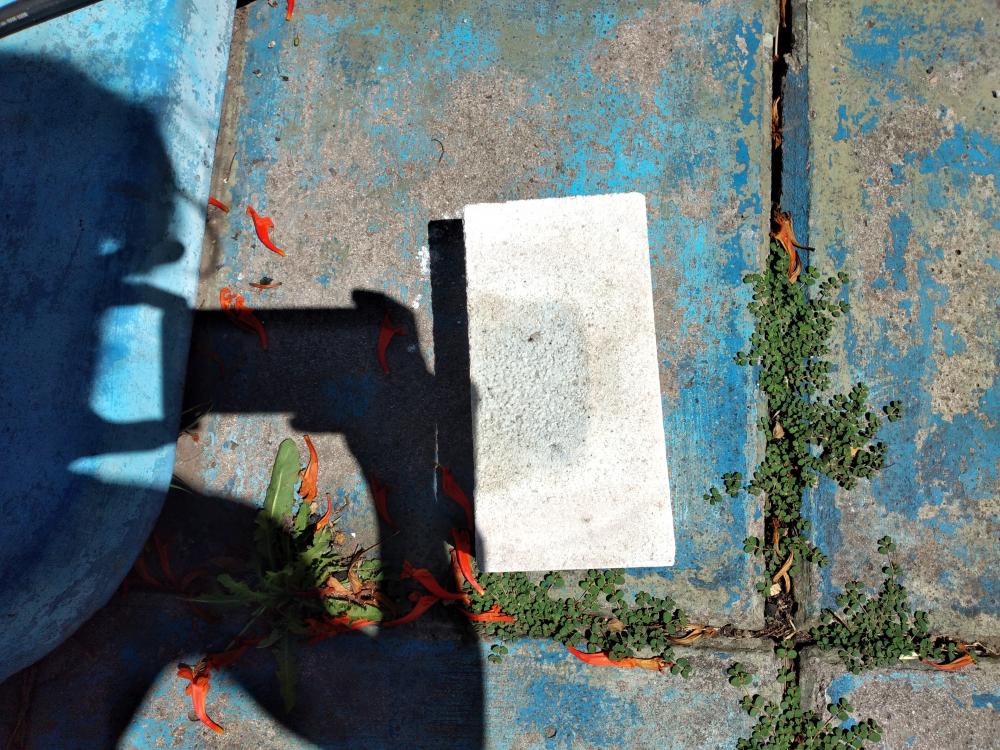
PedroS
-
Posts
8 -
Joined
-
Last visited
Content Type
Profiles
Forums
Articles
Gallery
Downloads
Events
Posts posted by PedroS
-
-
After a lot of time , I finally finished my gas forge. I made a ribbon burner , and used some k26 bricks and a fine coat of zirconium silicate for the interior .
After the first time I lightened it (for use) my bricks melt .
I couldn't find anyone who had the same problem , and I'm not sure why it happened . The temperature inside the forge reached bright orange color.
Any thoughts?
-
Thanks , I will call some pottery supply stores tomorrow
-
1 hour ago, Mikey98118 said:
Do you have pottery supply stores locally? Because there is a common ingredient for glaze that will do a fine job...
Yes , I do. What would be the ingredient?
-
I did my search again , and found something whit the name of zirconium refractory painting , but I couldn't find it to buy here . I there any way to make it myself?
-
6 hours ago, ThomasPowers said:
While the BTUs per cubic centimeter is lower for natural gas; a blown ribbon burner should allow you to dump enough gas into the system to forge well with it. If it is designed well.
I got that one
1 hour ago, Mikey98118 said:Any good gas forge works as a reflective oven. With natural gas for a fuel, your forge will need a re-emitve coating even more than with propane.
I was hoping the refractory to be enough . you are referring to the kiln shelf you guys talk about a lot right? I get what the thing is ( I believe ) but I have no idea where or how to find it here (Argentina)
-
Hi , let me start saying my english may not be good enough , so let me know if something is not clear .
I been forging with my charcoal forge for half a year now , but wanted les time consuming , so i'm starting my first gas forge build.
Resources are not really available in Argentina , so I been doing some research and trying to pull out some design that may work with what I have.
First gas . Propane is too expensive here so , it has to be methane. People here use bottled methane for their gas forges , and works pretty well but a 10kg bottle is a bit out of my budget so i'm gonna give a shot at a natural gas forge. From my research a gathered 2 thing about Natural Gas , is not that hot , and doesn't have much pressure, so insulation and burner performance are key ( as in every other forge , i know). For this reason I've chosen a Forced air Ribbon burner.
Now , insulation , I know you probably are not gonna like this . For my insulation Im using K-26 insulating brick and that's it . Being my first build I didn't want to spend much so I bought 8 k-26 bricks( the factory gifted me 3 extra so I have 11 ) , and 10kg of 60% alumina castable refractory to coat the inside .
The build . my idea is making a box forge with 6 bricks (2 for the sealing 2 for the floor , 1 for each wall ) and cast a 1/2 inch in the interior. The box made with the bricks ( without the refractory ) would have a volume of 161 cubic inches. For the burner my first idea was to cast it in refractory but then I had the problem as to where attach it to the forge , and the fear that it will lose to much heat because it will have no insulation behind it , so my new idea is to carve one of the wall brick , drill it and insert the plenum there , and then seal it with refractory (I thought high temp silicon my work to ) and make some kind of support so it doesn't puts to much stress in the brick an the refractory .
the forge is rather small so I was thinking of a plenum of 2x2 inches with a 3/4 mixing tube . I am under the impression that more flare holes will make shorter flares , so i was thinking of making as much as I can , without surpassing the 13:1 ratio for the burner block , and without surpassing the area of the mixing tube , to not lose pressure.
So let me know what do you think
-
Hi all , greetings from Argentina. I been doing some knives with 5160 and notice they're not able to hold a good edge. I believe it is because it's not a really hard steel , plus I have been tempering to straw yellow (I temper by color) .
So the thing is I will be quenching a kitchen knife for my father tomorrow and I want to try not to temper (the edge at least) . The question is I'm I loosing some mechanical benefit besides toughness?



Big Failure. My bricks ¿melt?
in Insulation and Refractories
Posted
Yes I think the burner is working ok . I didn't take any pictures or videos sadly . The briks , I bought them in a factory here in my city, and i don't really know much about them beside that were the k26 type of bricks .
tomorrow morning I will be going to the factory to ask about what could had happened